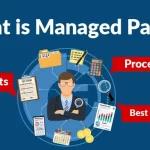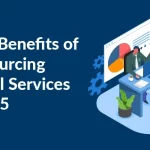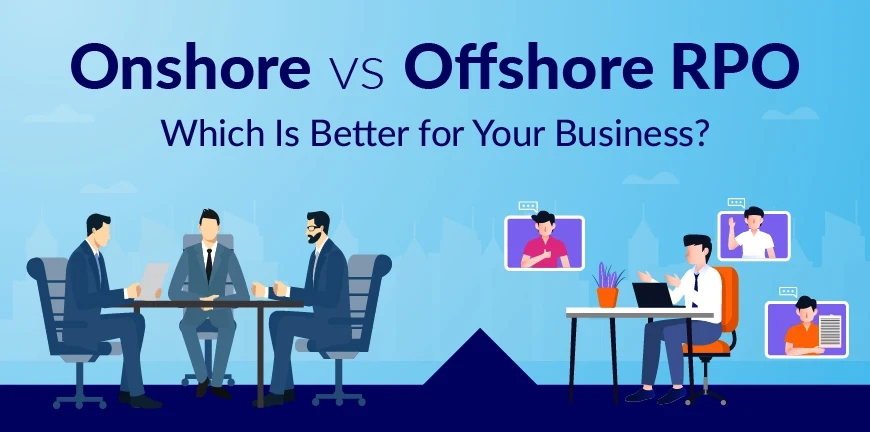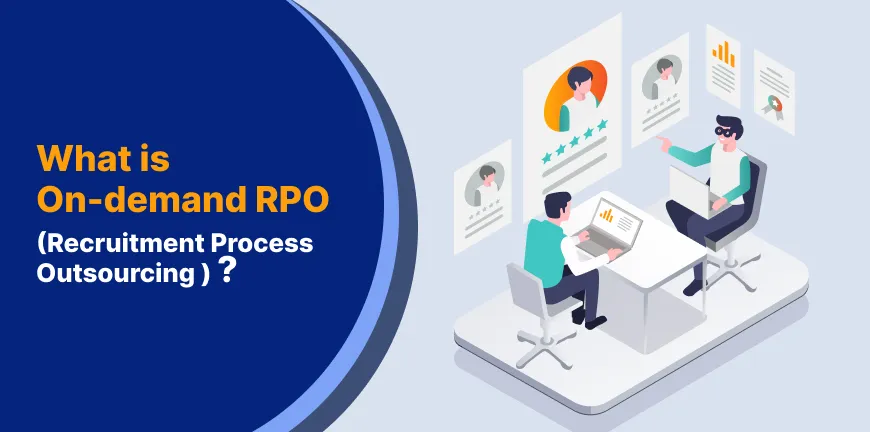
What is Managed Payroll – Process, Benefits and Best Practices
07/01/2025
Top 8 Benefits of Outsourcing Payroll Services in 2026
08/01/2025When recruiting candidates, there’s always a dilemma among companies even after they decide they want an RPO if they should go for an onshore or offshore RPO. Maybe an article on the differences between onshore and offshore RPO will make things clearer? Which might be better for their business, the convenience of nearness and similar culture or a distant offshore one with great experience and a talent pool that is everyone’s envy? We will make this choice a lot less difficult for you through this article.
What is the difference between Onshore and Offshore RPO?
Let us now look at the difference between onshore and offshore RPO. Onshore RPO is the process of using a service provider within the same country to manage your recruitment process whereas offshore RPO uses a service provider in another country to manage your recruitment process. Onshore RPO generally handles the recruitment of onshore candidates whereas offshore RPO handles the recruitment of offshore candidates.
Onshore RPO will be more familiar with the compliance and the laws within your country whereas it is very likely that the offshore RPO will not only be familiar with the labor law compliance in the other country but also those in other offshore locations across the world.
What are the benefits of Offshore RPO?
Offshore RPO has several benefits over onshore RPO. Some of these benefits are:
1. Potential Cost Savings
An offshore RPO, even though located in another country and hiring overseas candidates, knows how best to hire the right candidates, who will bring immense experience and rare skills to a role at a very good value for the business.
2. Possibility of Hiring Better Talent
Offshore RPOs generally have access to a much larger talent pool, and a very diverse one at that, since they are accustomed to hiring candidates across countries. This not only allows businesses to meet diverse goals but also hire candidates with very special skills.
3. Ability to Manage Labor Law Compliance Better
Offshore RPO is in a better position to manage labor law compliance better (if they also provide the service) as they have access to and remain updated on the statutory and regulatory laws in labor compliance in the country.
4. Access to a wider and different talent pool
An offshore RPO has access to a wider and more different talent pool. This gives the business a lot of options when it comes to recruitment. Not only can the client recruit for several rare skills but also have access to diversity, which is not easily found.
5. Give Your Reputation a Boost
Offshore RPO gives your reputation a boost. You may have a healthy reputation within your country but how is your reputation abroad? Requesting the services of an offshore RPO can really help your employer branding and let you reach more people abroad as well, with focused efforts in sourcing.
Onshore vs. Offshore RPO: Which Is Better for Your Business?
If understanding the differences between onshore and offshore RPO did not help, we hope this section gives you more clarity. Offshore RPO might be a better choice than onshore RPO if you are in a high cost-of-living country and are looking for cost-effectiveness. Offshore RPO might also help you get better quality talent than onshore RPO, especially in another geography.
But onshore RPO has its advantages as well. First, you are in the same country and the same time zone, so communication and collaboration are better and faster and second, you may be able to query your doubts a lot more easily than with an offshore RPO. Third, and most important, onshore RPO seems more trustworthy than offshore RPO as it is easier to verify the credentials of a company within the same country.
Are you looking for Offshore RPO?
Availing the services of an offshore RPO can help you hire candidates overseas in a much easier manner. Alp Consulting, with its experience of over 25 years in recruitment and staffing, can help you find the right candidates overseas.
Right from sourcing to shortlisting to screening and onboarding the right talent, we will take care of the entire recruitment process or parts of the process. We will ensure that you too get a chance to review the choices we have made as these employees would soon be a part of your team. Talk to us today and let us help you.
FAQs
1. What is an Onshore RPO?
When you outsource your recruitment process to an agency onshore, then it is referred to as onshore RPO. The purpose of onshore RPO is generally to free the HR team for other strategic tasks, find candidates onshore and expand the talent pool significantly.
2. What is Offshore RPO?
When you outsource your recruitment process to an agency offshore, then it is referred to as offshore RPO. Offshore RPO is used generally for hiring overseas candidates. It can also find exceptional talent or help meet special short-term requirements in a particular skill.
3. How to pick between onshore and offshore RPO?
Picking between onshore and offshore RPO is not easy. You would need to look at your immediate staffing needs, how soon you want to satisfy them, and whether you need to hire candidates from offshore. You would also need to consider your budget and the time for which you would need the support.
4. What are the challenges in offshore RPO?
In offshore RPO, there are certain challenges which might lead to many opting for an offshore or a nearshore model. First, there could be language issues, such as lack of communication or miscommunication. There could also be issues with collaboration because the recruiters and hires are in a different time zone. Cost could be another issue if the RPO uses advanced technology and has very efficient processes in recruitment.
5. Is Offshore RPO expensive?
Offshore RPO is expensive if the country it will be outsourced to is a developed country with a high cost of living or if the hires had very rare skills for which you would generally need to pay a lot more than other more common skills. Offshore RPO could also be expensive if they rely on a lot of proprietary software or if there are too many manual processes.
Contact Us For Business Enquiry

Amit Saproo
Amit Saproo is the Head of Operations at ALP Consulting with nearly 17 years of experience in Executive Search, RPO, Leadership, and IT & Engineering recruitment. He leads nationwide recruitment programs across Technology, BFSI, and R&D domains, driving strategic hiring solutions for diverse client needs. Amit excels in building and managing high-performance teams that deliver scalable, end-to-end recruitment and consulting services.




